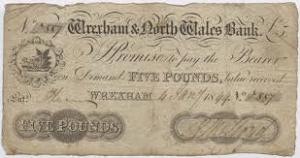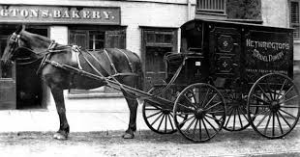Introduction, James Ashley (b.1833)
Reading James Ashley’s memoir I was not just able to gain an insight into the type of life he lead, but also was taken through an exploration of both the good and bad periods within his life, involving issues surrounding work, family, health and politics and their impact on society. James Ashley was born in Market St. Wrexham, North Wales on March 5th 1833.

Before James begins telling me of his journey through his lifetime, he declares that this autobiography will detail his life after he had finished his time in education.
“Having preserved these printed papers I will not further write of those days but rather will begin about the time I left school in July, 1846, going first as errand boy to Mr. Robert Thornely becoming afterwards his apprentice in Silk Hat Finishing on October 1st, 1847.” (Ashley p.1).
I was a little disappointed, as it would have been interesting to envisage how James was as a child in comparison to what he tells us about his adulthood. However James does hint at difficulties faced by his family during his childhood and specifically mentions a period in his life, which I believe helps shape him into the man he becomes later on. James moved from his home in Seven Bridge Lane to a new home in Lambpit St. in the year 1838. At this point he was a little over five years old and he states that he did not then know the real reasons behind the move. “I did not then know the cause of that change and the family trouble” (Ashley p.1). James explains the motive behind the move. His parents were in the bakery business, which like many other manual labouring jobs was a popular field of employment in the 19th century. However James reveals a dispute between his father and miller, who supplied them with the flour.

“My Father, at that time and ever afterwards, declared that he paid the account in the office at the mills, but as the receipts could not be produced a distress was put in the house and the furniture sold- at least so much as to meet the miller’s claim” (Ashley p.2)
I believe that this shows the precarious financial position of small tradespeople like the Ashleys. There is no solid evidence suggested by James to show that his father was guilty of not paying the accounts, instead he was found guilty because for some reason or other, receipts could not be produced, which to me sounds like a suspiciously weak reason to back up an accusation. This to me asks questions about the validity behind the allegation. Was it done out of spite or perhaps James’s father was simply an easy target to blame, due to him not having the financial power to fight back? James does not mention that his father was imprisoned within his memoir, instead I believe he may have paid of the debts by moving to a cheaper house on Lambpit St.
At the time being at a fragile age, James was oblivious to the truth, which understandably any five year old would be. However the episode hints at a troubled upbringing for James and his family, living in a working class area in the 19th century. As well as this, I believe this particular incident helped mould James into becoming the man he is, especially in terms of work and family life, which I will discuss in greater detail through later blog posts.
Bibliography
Ashley James, Untitled, pg1-50,(c, 12,500 words). Brunel University Library. Vol:1 No:24

Leave a Reply